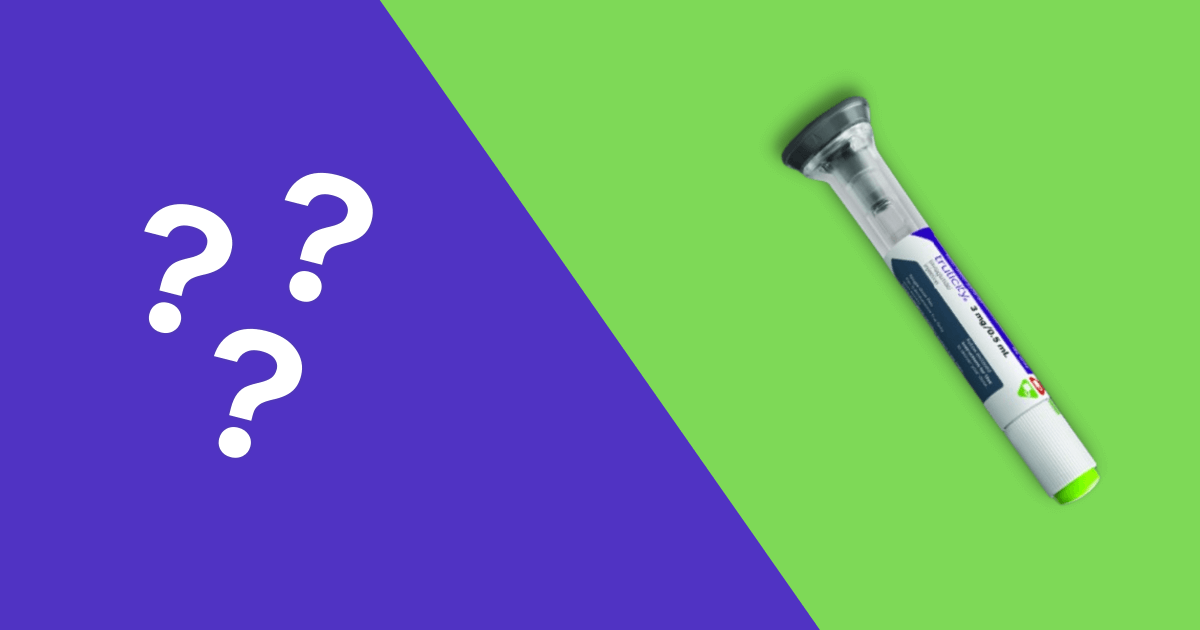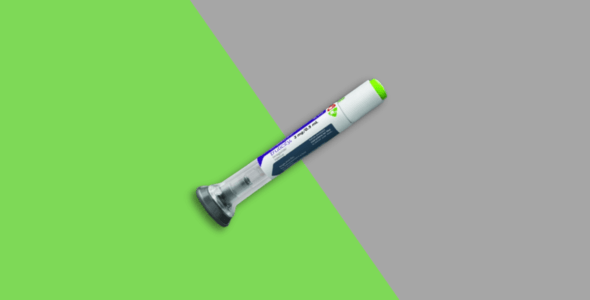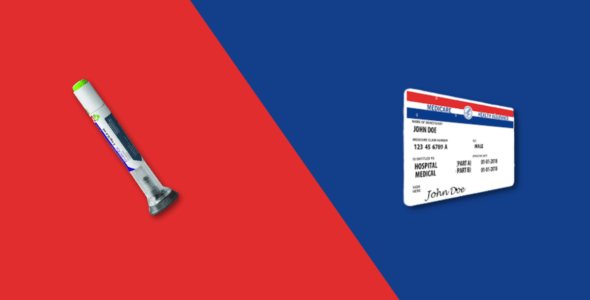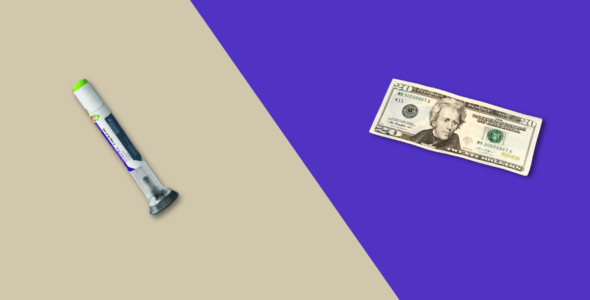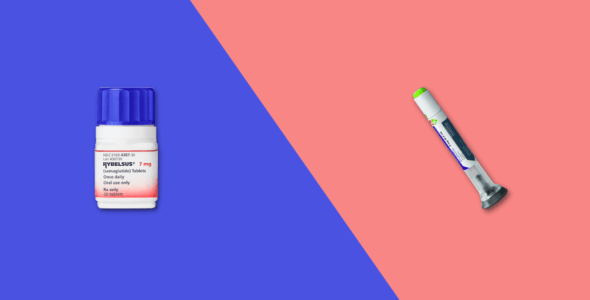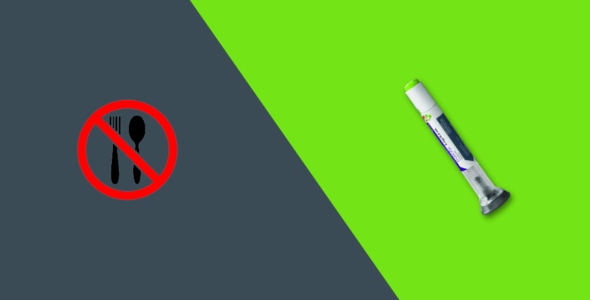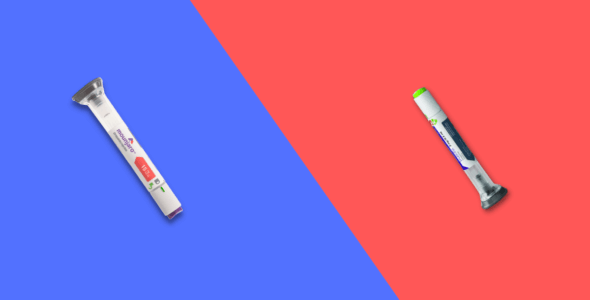Trulicity alternatives for type 2 diabetes
Trulicity is the brand name for a prescription drug used in combination with diet and exercise to treat type 2 diabetes in adults. It is not indicated to treat patients with type 1 diabetes mellitus or diabetic ketoacidosis. Trulicity is a glucagon-like peptide 1 (GLP-1) receptor agonist that helps reduce your blood glucose levels. The active ingredient in Trulicity is dulaglutide which stimulates insulin secretion and reduces glucagon release, depending on your blood sugar level.
Trulicity is an expensive brand-name medication with several alternatives available. Learn more about what Trulicity is, how it works, its side effects, and its alternatives.
What is Trulicity?
Trulicity is a glucagon-like peptide 1 (GLP-1) receptor agonist. GLP-1 is a hormone that binds and activates GLP-1 receptors. Activating these receptors lowers blood sugar by stimulating insulin secretion and reducing glucagon release. These are done in a glucose-dependent manner, meaning if your blood sugar is high, your body will secrete more insulin and less glucagon. Trulicity can also delay the time it takes food to empty out of your stomach after eating. This helps reduce the rate glucose circulates in your bloodstream.
RELATED: What is Trulicity
What are the reasons for taking Trulicity?
Trulicity is a GLP-1 receptor agonist that is FDA-approved (Food and Drug Administration) to:
- Improve blood glucose control when used along with exercise and diet in adults with type 2 diabetes
- Reduce the risk of serious cardiovascular events (heart attack) in adults with type 2 diabetes mellitus who have known cardiovascular disease or multiple cardiovascular risk factors, including high cholesterol, high blood pressure, and smoking
Trulicity is not a weight loss drug, but those taking Trulicity may lose weight as a side effect and may be prescribed dulaglutide off-label for weight loss if they are suffering from obesity or are overweight.
Side effects of Trulicity
The most common side effects of Trulicity reported include:
- Nausea
- Vomiting
- Diarrhea
- Constipation
- Abdominal pain
- Decreased appetite
- Weight loss
Some possible serious side effects of Trulicity include:
- Increased risk of thyroid tumors
- Pancreatitis
- Diabetic retinopathy complications
- Severe gastrointestinal reactions
- Hypoglycemia when used along with insulin secretagogues or insulin
- Acute kidney injury
- Increased heart rate
- Acute gallbladder disease
- Hypersensitivity reactions
You can report side effects to the FDA at 1-800-FDA-1088 or www.fda.gov/medwatch.
Does Trulicity cause nightmares?
Trulicity has been seen to cause nightmares as a side effect, especially for males, between the ages of 50 and 59 that have been taking Trulicity for less than 1 month. Trulicity was also seen to cause abnormal dreams, especially in females, over the age of 60 who had been taking Trulicity for between 1 to 6 months.
What are the most commonly prescribed doses of Trulicity?
- 0.75 mg/0.5 ml single-dose pen
- 1.5 mg/0.5 ml single-dose pen
- 3 mg/0.5 ml single-dose pen
- 4.5 mg/0.5 ml single-dose pen
RELATED: Trulicity Dosage
How to take Trulicity
- Inject Trulicity under the skin of your stomach (abdomen), upper arm, or thigh. Do not inject Trulicity into a muscle or vein
- Use Trulicity once a week on the same day each week at any time of day. You could change the day you give the injection if your last dose was given at least 3 days before
- If you miss a weekly dose of Trulicity, take the missed dose immediately if there are at least 3 days until your next scheduled dose. If there are less than 3 days until your next dose, wait and take the next dose on your regularly scheduled day
- You can take Trulicity with or without food
- Do not mix Trulicity and insulin in the same injection
- You may give an injection of Trulicity and insulin in the same area of the body, but not right next to one another
- Rotate your injection site with each weekly injection
- Discuss with your doctor how to recognize and treat hypoglycemia (low blood sugar), and hyperglycemia (high blood sugar)
- Store Trulicity in its original carton in the refrigerator at 36°F to 46°F away from light. You can keep each single-dose pen at room temperature for up to 14 days. Do not freeze Trulicity or use it if it’s been frozen
RELATED: Does Trulicity need to be refrigerated?
Trulicity contraindications
Trulicity is contraindicated in patients with:
- A personal or family history of medullary thyroid carcinoma (MTC) or in patients with multiple endocrine neoplasia syndrome type 2 (MEN 2)
- Serious allergic reaction to dulaglutide or any of the product components
Trulicity warnings
- Trulicity may cause thyroid tumors or a type of thyroid cancer called medullary thyroid carcinoma (MTC)
- Inflammation of the pancreas (pancreatitis) has been reported in clinical studies. Discontinue Trulicity immediately if pancreatitis is suspected and do not restart it if pancreatitis is confirmed
- Increased risk of diabetic retinopathy complications. If you have a history of diabetic retinopathy, you should be monitored for the progression of this condition
- Your risk of hypoglycemia is increased if Trulicity is used along with an insulin secretagogue (sulfonylurea) or insulin. A lower dose of the secretagogue or insulin may be necessary
- Increased risk of acute kidney injury. Your renal function should be monitored if you have renal impairment and severe adverse gastrointestinal reactions
- Serious hypersensitivity reactions (anaphylaxis, angioedema) have been reported with Trulicity. If this reaction occurs, discontinue using Trulicity immediately and seek medical advice
- Increased risk of acute gallbladder disease
- Trulicity use may be associated with severe gastrointestinal adverse reactions. Trulicity is not recommended in patients with severe gastrointestinal disease
- Tell your doctor if you are pregnant or breastfeeding. Trulicity should be used during pregnancy only if the potential benefit justifies the potential risk to the fetus. It is not known if this medication is present in breast milk
Trulicity drug interactions
When Trulicity is taken with other medications, they may interact and change how those medications work. They may also make some side effects more likely and severe. Make sure your doctor is aware of all prescription and over-the-counter medications, including supplements you are taking. Some common drug interactions of Trulicity include:
- Increased risk of hypoglycemia if Trulicity is used in combination with insulin secretagogues (sulfonylureas) or insulin
- Trulicity may delay gastric emptying so it can impact the absorption of oral medications taken along with it. Trulicity should be used with caution in patients with gastroparesis
What are the benefits of using Trulicity?
Trulicity is a once-weekly easy-to-use injectable medicine for the treatment of adults with type 2 diabetes to help improve blood sugar control to reduce the risk of cardiovascular problems such as heart attack, stroke, or death in people with heart disease or other cardiovascular risk factors. Trulicity has the added benefit of causing weight loss, which is especially beneficial in patients with obesity.
Trulicity alternatives
There are many other alternative types of diabetes medications your healthcare provider may prescribe if Trulicity is not for you. These will vary in the side effects they cause and how much they cost. FDA-approved alternatives include:
- Ozempic (semaglutide)
- Victoza (liraglutide)
- Januvia (sitagliptin)
- Bydureon Bcise (exenatide extended-release)
- Byetta (exenatide)
- Glucophage (metformin)
- Rybelsus (semaglutide)
- Saxenda (liraglutide) – weight loss medication that is not prescribed for diabetes
What medication is the same as Trulicity?
While there are no medications that are exactly the same as Trulicity, there are several other medications that are in the same class of drugs known as GLP-1 agonists, including Ozempic, Victoza, Byetta, and Rybelsus.
Is there a cheaper alternative to Trulicity?
There are many alternative treatments for diabetes. However, which treatment is best for you will need to be discussed with your doctor. Metformin is the preferred drug of the first choice in most cases of diabetes. It also just so happens to be an inexpensive alternative to Trulicty.
Is there a generic alternative for Trulicity?
Currently, a generic version of Trulicity is not available, with the earliest date a generic version may become available from 2027 to 2029 when the patent for Trulicity expires.
Foods to avoid with Trulicity
While there are no foods known to interact with Trulicity, which needs to be avoided, some foods may make the side effects of Trulicity worse. If you experience any bothersome side effects after eating, try avoiding that food to see if your symptoms improve.
In general, it is recommended to eat a healthy diet when taking Trulicity or any other medication for diabetes. A healthy diet includes foods from all food groups and limits foods high in sugar, fat, and calories. Speak to your healthcare provider about what types of foods are best for you.
It is recommended to avoid foods and drinks that are high-fat, sugary, and calorie-dense, for example, alcohol, fast food, processed food, soda, cake, cookies, pastries, chips, and healthy snacks such as granola bars that are actually high in sugar.
RELATED: What foods to avoid with Trulicity
Ozempic vs Trulicity
Trulicity (semaglutide) and Ozempic (semaglutide) both belong to the same drug class, glucagon-like peptide-1 (GLP-1) agonists. They are both given as a weekly subcutaneous injection under the skin. Trulicity and Ozempic are both indicated to help improve blood glucose control in adults with type 2 diabetes and lower the risk of cardiovascular events in those with type 2 diabetes and heart disease. They both cause similar side effects as well.
The active ingredients they contain are the most important difference between Ozempic and Trulicity. Ozempic contains a GLP-1 receptor agonist called semaglutide, whilst Trulicity contains a GLP-1 receptor agonist called dulaglutide. Semaglutide and dulaglutide do work in similar ways, but they are not identical, and you may respond to them differently.
The doses prescribed for each drug also vary. Ozempic pens can be prescribed in 0.25 mg, 0.5 mg, and 1 mg doses, whereas Trulicity pens can be prescribed in larger 0.75 mg, 1.5 mg, 3 mg, and 4.5 mg doses. Ozempic is typically taken in smaller doses, as independent research has shown it to be more effective than Trulicity.
RELATED: Ozempic vs Trulicity
Which one is better Trulicity or Ozempic?
Both Ozempic and Trulicity are proven and effective treatments for type 2 diabetes. However, in the SUSTAIN 7 clinical trial that compared the two medications, Ozempic was found to be more effective than Trulicity. The study was conducted on 1,201 patients with type 2 diabetes from 194 hospitals in 16 countries. Over the 40-week trial, Ozempic lowered blood glucose levels further than Trulicity on average and caused more weight loss. No noteworthy differences in side effects were found between Ozempic and Trulicity.
Although Ozempic was found to be more effective than Trulicity, it is important to note that people respond to medications differently. This means some people will get better results from Trulicity and some from Ozempic.
Natural alternatives to Trulicity
According to a 2021 study, tea, berberine, curcumin, wheat, cinnamon, soybean, gardenia, and resveratrol may all boost GLP-1 levels in your body naturally and work as natural alternatives to Trulicity.
You shouldn’t stop using prescription drugs in favor of natural alternatives without speaking with your healthcare provider first. Natural alternatives aren’t generally as effective as prescription diabetes drugs.
Is Trulicity safe with caffeine?
No direct interactions have been found between Trulicity and caffeine. Speak to your doctor if you are concerned about caffeine consumption while using Trulicity.
Medically reviewed
A medical professional has reviewed this article.


Jamie Winn, PharmD
Jamie Winn, PharmD
Dr. Jamie Winn received his Doctor of Pharmacy in 2002 from the University of South Carolina College of Pharmacy, Columbia, SC. Jamie is a medical reviewer for NiceRx.

